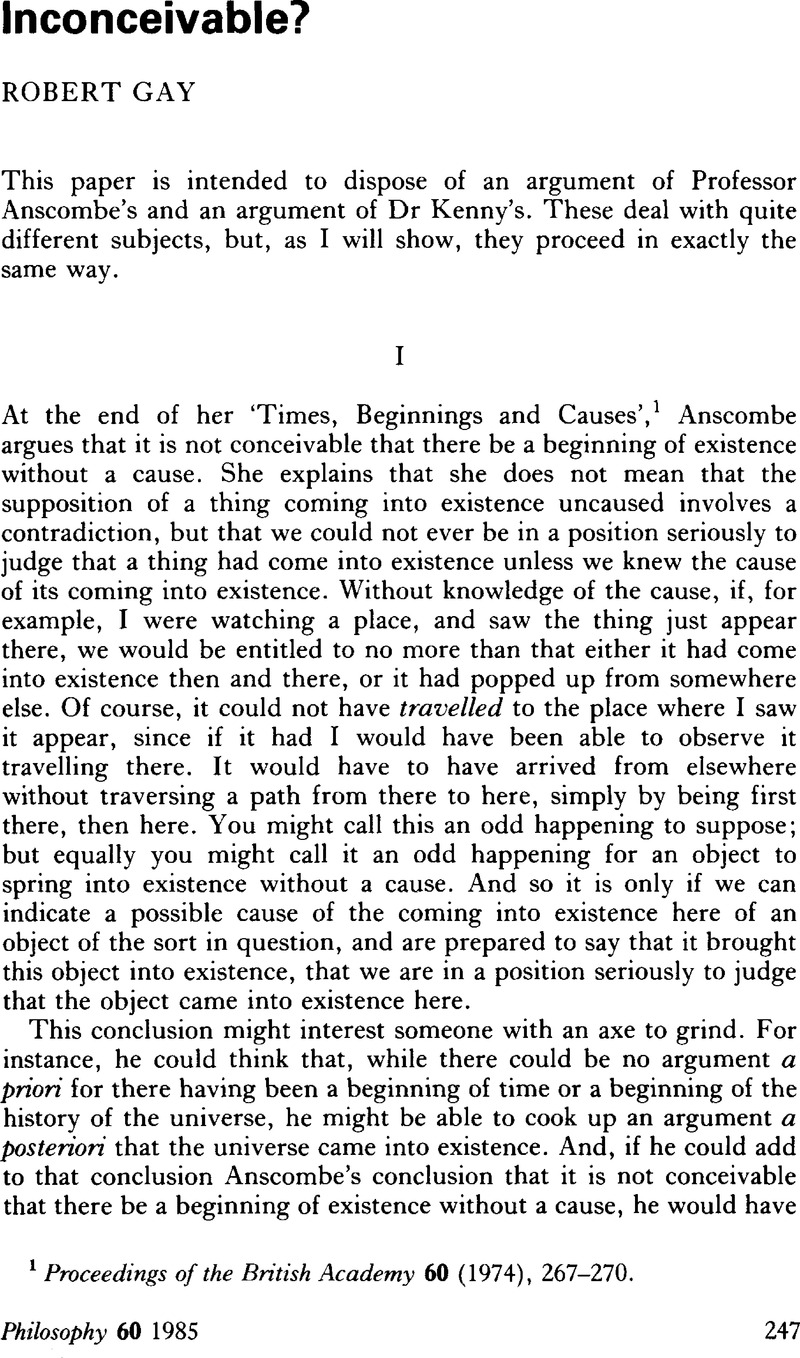No CrossRef data available.
Article contents
Inconceivable?
Published online by Cambridge University Press: 30 January 2009
Abstract

- Type
- Discussion
- Information
- Copyright
- Copyright © The Royal Institute of Philosophy 1985
References
1 Proceedings of the British Academy 60 (1974), 267-270.
2 Cf. Swinburne, R. G., Space and Time (London: Macmillan, 2nd edn 1981), 252-258. Swinburne seems a bit disdainful of such arguments, and certainly says that at present we do not possess an argument of this type which is valid and has true premises.Google Scholar
3 Kenny, A. J. P., The God of the Philosophers (Oxford: Clarendon Press, 1979).Google Scholar
4 Geach, P. T., God and the Soul (London: Routledge and Kegan Paul, 1969), 39.Google Scholar
5 In Intention and Intentionality, C., Diamond and J., Teichman (eds) (Brighton: Harvester, 1979), 3-13. At p. 9 Kenny describes a different case which we might be inclined to take as an action even though we had not identified the agent, and says that the case described would not enable us even coherently to raise the question, ‘Who was the agent?’Google Scholar
6 Mackie, J. L., The Miracle of Theism (Oxford: Clarendon Press, 1982).Google Scholar
7 Cf. Williams, B. A. O., Descartes: the Project of Pure Enquiry (Harmondsworth: Penguin, 1978), 289-292.Google Scholar
8 Swinburne, R. G., The Existence of God (Oxford: Clarendon Press, 1979), Chapters 7 and 8.Google Scholar
9 I am grateful to Dr A. J. P. Kenny for a helpful comment on the first draft of this paper.


